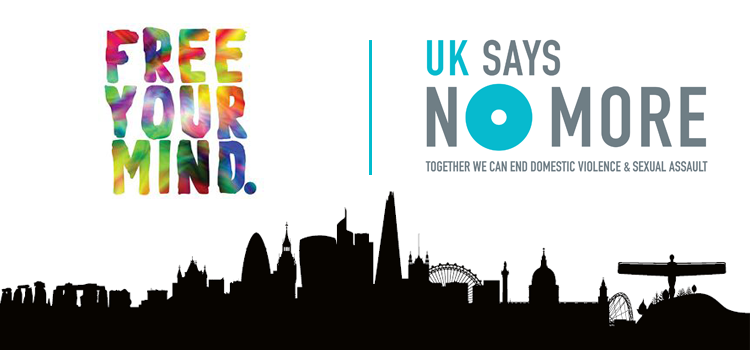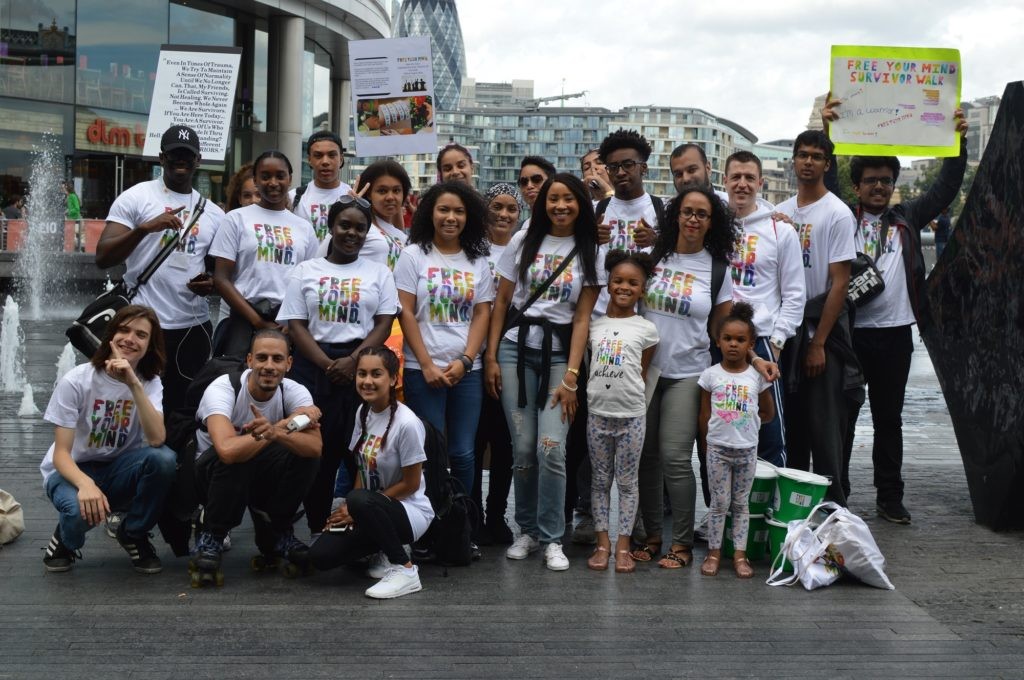We’re so fortunate to have partnered with Free Your Mind, a charity working with victims of childhood domestic violence.
Here, Natasha Benjamin, Founder and Managing Director of Free Your Mind, discusses her own experience with domestic violence and mental health, and why it is so importance more awareness is raised around children who grow up around family violence.
Domestic Violence in Childhood is a major problem of our times, affecting 1.8 million children across the UK and even more alarmingly 1 in 3 will have a mental illness as a result.
Since launching Free Your Mind in 2013 I have worked to create better awareness of this issue, to create a support system for children affected after realising that there was no specific service for them, only finding that their care was slotted into the support and care of their parent, meaning that the child would often be put into family counselling or support sessions with their parent and have their needs merged together, this is ineffective for many reasons:
- It doesn’t give the child an open outlet to be honest about their experience of the violence
- It makes their experience seem secondary to their parent
- It assumes the parent and child relationship has been unaffected by the violence
- Many children are often scared to speak out about the violence and family sessions could be intimidating for them
During my years of working with children and young people with lived experience of Domestic Violence they’ve all wanted one thing: To have their voices heard, particularly for children that are living in refuges they are often surprised when I go in to have sessions with them that suddenly all the attention is on them, not their mom, not their dad not the violence but them. Through play, art and 121 workshops and sometimes just chatty sessions we create a space for children affected to speak out about their experience working through the complex needs and worries that they may have.
The difference between us and other services is that we are peer led, meaning that all of us working directly with the children have also been victims of childhood domestic violence ourselves. This automatically creates a bond and a space for the children to feel safe that they are in the company of not only someone who is professional but who completely understands their experience.
In the very early stages of sessions, I have found in particular many young adults affected understandably have a defence up, often wondering what can we do for them and how can we relate to them? That is until they realise we have once been in the same place as them and the only difference is that we have healed, recovered and now help others to do the same.
This creates realistic role models for these children and young people to see that they can change their lives and that violence isn’t the only way our aim to stop the victim perpetrator cycle, assist them to make better decisions and view their future differently.
There are many high profile Child Victims of Domestic Violence such as, Tony Robbins, Bill Clinton, Oprah Winfrey and Alesha Dixon, and it’s something I know only too well.
I was a child of Domestic Violence, a child who spent my most forming years aged 6 to 12 living on the edge terrified of not knowing when the next violent episode would happen next. Not quite understanding why, but hating the perpetrator (an at the time stepfather) every moment I heard his breath in my presence.
I had such a vengeful feeling towards him that my young mind couldn’t properly comprehend that still remains now, I didn’t understand why he would just get angry over nothing or walk into the house already angry and start to beat up my mom; sometimes I’d even get caught in the middle of it because I couldn’t bear to see him hurt my mom.
I can’t quite put it into words how alarming this was for me, my love, my protector, my everything in one person being beaten up suddenly becoming a helpless pulp, if he could do that to the only person responsible for me then there was no way that we could ever feel safe.
It would frighten the living daylights out of me, but at the same time built an inner strength in me that I never would realise I had for many years later. I often spent his violent moments getting involved because I couldn’t bear to see him hurting my mom the way he did, something a child should NEVER have to endure or participate in EVER!
Domestic Violence traumatises children; it shapes the way that they look at the world and wires their brain to expect danger, all the time. I became a very fearful and anxious child and it set me up for a lot of what transpired as I grew older.
While the violence continued at home nobody knew at school, I was too ashamed of being bullied and judged, but what kept me going was an inner resilience, the need to protect my mom and the feeling that I wanted my life to be better. At 14 I was taken into kinship care, when my mom attempted suicide.
Feeling both guilty and innocent tears you apart – guilty because I was told it was my fault or at least that I could or should have done something to stop it. Trying to make sense of these issues when you’re young, especially when you feel you have nobody to turn to or confide in, is horrible.
I developed a mental illness of PTSD, depression, selective mutisim, anxiety and panic attacks. I self harmed by overeating so I was bullied at school for being overweight. The selective mutism began after an experience when I spoke out about the domestic violence, but instead of getting help it back fired on us. That experienced had me believe that speaking the truth caused trouble started fights. So I began to hide the truth, I began living a lie. Like Maya Angelou said ‘mutism is like a drug’ – you don’t have to do anything.
As I grew older into my teens and into adulthood my mental health problems, and the reluctance to speak up for myself created problems in every area of my life from friendships, relationships and employment.
Due to my lack of self worth, I created unbalanced friendships by putting everyone else opinions and views above my own. I hid behind dominant characters. I’d rather be upset than see someone else upset, even if they were the one in the wrong. The need to people-please caused people to expect more and more from me and disrespect me, but I had set the standard for that behaviour. I was called the pied piper by friends because I based my self-worth on the amount of friends I had, and how popular I was, even if the friends were no good for me. One of my worst memories of the violence was at Christmas where ended up fleeing with just the clothes on our backs.
I really thank my mom for making the Christmases that came after special enough for me to start to love Christmas again, so that my memories and the experience was not taken away by the perpetrator.
This is SO many other children’s experience and through my own work since launching Free Your Mind In 2013 – a peer led not for profit that helps other children to recover from the trauma of Domestic Violence by presenting them positive examples that the trauma can be overcome and that there is another way. The victim perpetrator cycle indicates that it can either affect you in two ways; You either become the anxious, quiet fearful child, or the angry but still fearful child who can go on to repeat the cycle they have grown up with.
Changing this begins and ends with the children and how we help them to recover and heal from these experiences. That is why we need more awareness and focus on how domestic violence affects them.
We can keep talking about domestic violence with the focus solely on the adults, but it begins and ends with a child who witnesses the violence in their homes and that is my aim through the work we do with Free Your Mind – campaigning, working with children in refuges and in schools to create change by those affected.
My life is very different now, but it took a life time of unlearning and healing.
Every day I work towards shedding the effect that the trauma had on me, I am quite self aware now and what I would say to anyone working through something like this, is to keep going, talk to about it to someone about it and rather than just looking at the trauma of what happened, also look at what its taught you about life and what you won’t accept.
Think about this; as much as it may still hurt, you have survived intense adversity and trauma at a young age but never forget that you are still here. If you can overcome this you really can overcome anything. We are not victims we are a survivors.
Thank you to Natasha for contributing this blog.
Find out more about Free Your Mind.
You can also find Natasha on Twitter and contact her at Natasha@freeyourmindcic.com.
[maxbutton id=”11″]





